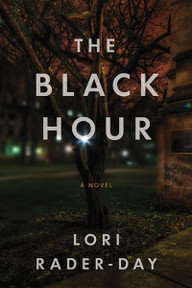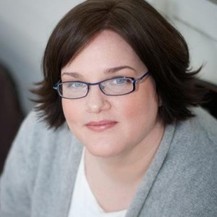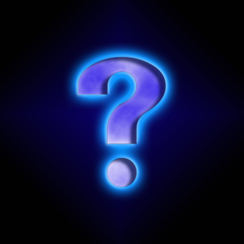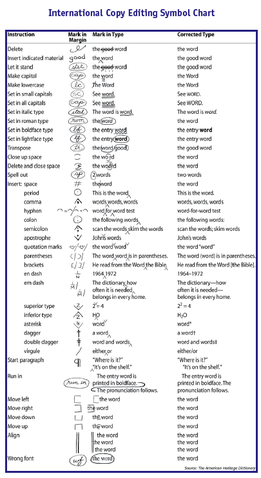 For many of us who work on college campuses, the specter of violence often looms. For instructors, there is an additional vulnerability, a sense of being studied and examined as intently as if they were the subjects of the course. In my day job, instructors frequently speak of feeling naked and exposed when they teach. Indeed, the public scrutiny can be tough for instructors. Even those who can bear it may still acknowledge a somewhat alarming truth: Students may know all kinds of things about us--often well before we know a single thing about them. So looking out at that sea of student faces, instructors may find themselves asking--who are these students, really? What are they thinking? What are they hiding? These are the kinds of questions that Lori Rader-Day explores in her stunning debut novel, The Black Hour (Seventh Street Books). In this compelling work of fiction, a sociology professor seeks to understand why a student she didn't even know tried to kill her. I invited Lori to chat about her novel on my blog. [Full disclosure: Lori and I work at the same university, although we actually met at Printer's Row in Chicago last year.]  The Talented Lori Rader-Day The Talented Lori Rader-Day Could you tell us about what inspired The Black Hour? I know that you work at a university—what role did that play in your inspiration? You don’t have to work at a university to worry about the violence happening on campuses across the nation, but because I do work at a university, it’s something I think about. But The Black Hour is more about the aftermath than the violence itself. The idea was: what would a first day back on campus be like for someone who survived an act of violence? Since the perpetrator was no mystery, the question had to be why. When I started writing, I didn’t know why, either. I had to keep writing until I knew why. The Black Hour is told through the alternating perspective of two individuals—the sociology professor who was the victim of the shooter, and a graduate student serving as her Teaching Assistant (TA). What contributed to your decision to tell the story using two voices? What were the challenges and the benefits of this technique? Originally I started the book from Amelia’s perspective. In the first few chapters, she met a new graduate student who was interested in her work studying violence. About 50 pages into writing the book, I realized I had a problem. Amelia was newly injured. How was she going to go scampering all over campus looking into her own attack? It turned out that the student, Nathaniel, had more to say. And then took over half the book. The challenge was in keeping the two first-person narrators separate so that a reader would know who was talking at all times, but the opportunities were greater. I had a lot of fun playing them against each other, and forcing them to share the story gave the novel its structure and pace.
2 Comments
 Interacting with Mars The other day a faculty member who teaches college science courses shared with me an innovative method he uses to enhance critical and creative thinking in his students. Instead of having his students complete more traditional reports on scientific principles and concepts, he has them create science fiction stories, drawing on those same scientific ideas. (Boy would I have loved science if my professors had asked me to do that!). As we talked, we discussed the necessity of not just asking students to sprinkle scientific details through their stories, but rather the importance of having their characters engage with those details. This would add to the scientific authenticity. More importantly, I think they contribute to the overall richness of the story. So, for example, a writer could just passively describe Mars: "The floor of the Gale Crater was grayish-blue in color. Brown and gray pebbles were strewn everywhere. At the center of the crater was Mount Sharp. Without any sign of life, Larry thought it was definitely the perfect place to land the Motherland's craft." Or, the characters could actively engage with the Martian terrain--as they would engage with another character: "As Larry stepped cautiously down from his craft, his boot sunk a little deeper down into Gale Crater than he had expected. What he had thought would be thickly-layered bedrock was actually more sponge-like in its composition. This was not the first time the Motherland's Minister of Science had been wrong about a planet. He kicked one of the many brown pebbles strewn across the landscape. "It's going to take me forever to get to Mount Sharp," he muttered to himself. "Why'd the General tell me to land here? The mountain's at least three kilometers to the north." Shivering, he checked the temperature gauge on his suit. 66 degrees. "Geez, it's dropped at least 10 degrees since I landed." Out of the corner of his eye, he saw one of the pebbles move. "Uh, oh." He groaned. "That's no pebble!" Okay, there's a reason I don't write science fiction. But when I was first embarking on my novel-writing journey, I learned about the concept of treating description, scenery, weather, etc as another character. Details should be added to enhance the experience of a character. In A Murder at Rosamund's Gate, for example, I turned the ever-present London fog into a character--alternatively gentle and tempestuous in turns. Of course, this is a matter of taste. There are plenty of great books out there--especially some of my favorite nineteenth century novels--that have PAGES and PAGES of description without a bit of dialogue or action to break them up. But I admit, I probably skim long passages of description for the most part. How about you? Do you enjoy books with lots of scenic descriptions? Or do you prefer when characters engage with the scenery, as they would engage with another character?  Tomorrow I'll be delivering a talk to Canadian law professors in Montreal about promoting critical thinking in their teaching. This is part of what I do in my "day" job--discussing critical thinking in different learning contexts. But it occurs to me that I haven't heard much discussion about the act of novel writing as a critical thinking process. Novel writing as a creative process, to be sure, but I've never seen it framed as a critical thinking process. (By critical thinking, I don't mean being critical, but rather bringing a level of analysis to creative writing). Yet, to write a coherent novel--okay, even just to finish a novel--critical thinking is vital. Consider: 1. In writing a novel, the author must build an argument. Now we might not necessarily view novel writing in this way, but isn't that we are doing? (Except, perhaps, for really experiential or avant-garde novel forms). Why is my protagonist taking this journey? Why must the murderer be caught? Why must my heroine reconnect with her long-lost sister? (Okay, that last one is not from my novel, but you get the point). Building an argument is partially about exploring motivations, but it's also about making a case to our readers about why they should care about the characters, the journey, the resolution, etc. 2. Evidence is needed to properly build an argument. In my chosen genre--mystery writing--offering evidence is essential. Clues to the murderer's identity must be sprinkled through the text, or many readers will rightfully cry foul. But I think this is the case for all novels. We should be able to go back through a text and see the evidence (no matter how carefully disguised) that supports how a hostage in a bank robbery could become a criminal herself, or explains why two people would threaten to end their lives with a handful of poisoned berries, or how stepping on a butterfly could change the world. 3. Challenging one's own assumptions, biases, and stereotyped thinking is crucial. At the very least, this practice will decrease the presence of clichés and clichéd thinking throughout the text. Certainly, creating characters that aren't all good or all bad, but who are more nuanced and distinct, seems like good practice in getting beyond simplistic black and white thinking. (Can the antagonist have some redeeming qualities? Can the protagonist have a morally ambivalent stance?) Some stereotypes are easy to spot (dumb jocks, girls who hate math, alcoholic cops etc), but some underscore the entire text, and really are clichéd visions (the 1980s were all about greed; in the Victorian era, all people shared the same moral code). Personally, I like when authors create characters who offer alternate perspectives from the main character's point of view. That sets up for the reader the opportunity to consider an idea from more than one perspective, and may help offer alternative explanations for the story's arc. 4. Probing spurious or faulty correlations. This isn't just about whether coincidences are plausible or not (I posted on this before). I think that authors need to think through whether their reasoning is reasonable or not. For example, consider this spurious (or bogus) correlation: The townspeople always attend high school football games on Friday nights. A murder happened at the football game. Therefore, a townsperson must have committed the murder. I've seen lots of novels where the bumbling idiot (local sheriff, village detective, geriatric private eye, neighborhood gossip, despairing daughter-in-law, you name it) makes this kind of assumption. Sometimes as a plot device, this works. Especially when the goal is to make the "real" detective shine. But lots of times it feels like the author has taken the easy way out, and may have low expectations for the reader. Ultimately, I don't think there's much difference between critical and creative thinking. Both are essential, and both are hard. But as a reader or a writer--what do you think? Should critical thinking be part of the novel-writing process?  this MEANS something! After working through the copy edits of my first novel--A Murder at Rosamund's Gate--I must say, I really learned a few things. First, copy editors are amazing. Really. All this chicken scratch to the left actually means something important to the copy editing process. Delete! Insert! Move up! Move down! and my favorite, "AU," which is short for "Author, what the heck could you possibly mean by this passage?" I'm used to marking up student papers, but only the first few pages.So I was shocked--and frankly, a bit chagrined--to see that my entire manuscript was marked up from beginning to end, with characters and symbols I didn't recognize. (Thankfully, copy editors don't seem to share my grading philosophy: "Make 'em fix it themselves!") But I'm deeply grateful for her enormous help, and cognizant of how fortunate I am. Second, apparently, I don't use commas correctly. Nearly all my commas were eliminated in the editing process. This surprised me. Purdue's famous Online Writing Laboratory tells us there are 15 rules concerning the use of commas. Having had to memorize these rules as a grad student, I'd been reasonably confident in my ability to render a comma correctly. Yet, as I've learned, few of these comma rules hold true in fiction writing. Why such a marked difference in style? I suppose in fiction, the goal is to keep readers breathless, which won't happen if they have to stop at every comma speed bump. So my takeaway? Commas be damned!  those verbal tics are insidious! Third, I learned I have some terrible writing tics. Okay, I know the words "But," "However," "Yet," and "Actually" are not as disgusting as the tick pictured here, but they're equally insidious--crawling through my manuscript, clinging to my sentences-- refusing to be combed away under even the closest of scrutiny. Disgusting, I tell you! Disgusting! And so so SO hard to exterminate! See how many I've used in this post alone? But being aware of them is half the battle, right?  I don't edit with scissors anymore! Fourth, and more significantly, I also learned that continuity errors are extremely easy to make in the revising process. I can't remember if I've talked about this already but let me just say: Continuity errors are extremely easy to make in the revising process. (Ha! you see what I did there?) Seriously, I've discovered this problem the hard way. After I chopped out 10,000 words from the beginning and pushed the novel timeline back six months, I made some mistakes. These continuity errors also occurred, I think, when I cut a few minor characters (and reassigned their actions to other characters). Unless a writer is meticulous, which frankly I'm not, it's easy to make mistakes. This leads me to the fifth thing I learned: The spreadsheet is my friend! I'd heard writers talk about their "Bibles" (Nathan Bransford calls his the "Series Bible"), which contain all their character descriptions and quirks, key points, timelines etc. Never mind the term is a complete misnomer, the idea is sound. Systematically keeping track of stuff in a spreadsheet seems to be a particularly good idea now that I'm working on my second novel. This might give my Vice-President for Continuity Management (aka my alpha reader) a reprieve as well. And the sixth, more serious, point: As much as I think I've scrutinized my manuscript for historical inaccuracies, they seeped in anyway. "The Fire of London," my copy editor politely informed me, "began on September 2, which was a Sunday morning, not a Monday morning." No! this couldn't be true! She must not have understood how the Julian calendar worked. Ten days off the Gregorian calendar, beginning on March 26, blah blah blah I've talked about this before. Bottom line: there was no way I had it wrong. Confidently, I opened up my trusty historical date calculator, blithely went to September 2, 1666 and --Egads!-- found that the great calamity of London had indeed begun in the wee hours of a Sunday morning. I know my cheeks were a furious shade of red as I scrambled to reframe one of the most important scenes in my novel. It was hard work I wasn't expecting at this point, but I'm so grateful these errors were caught in the end.  shaping a novel--farrier style Which leads me to my seventh, most important, most nerve-wracking realization. The copy editing process means my novel--ten years in the making--is almost ready for the world! I'm no longer shaping this malleable object, hammering it, re-firing it, working it just so. It's almost ready! But the big question is...Am I? Murder at Rosamund's Gate When I teach history, I always ask my students to view every "fact" as relative and subject to interpretation. Inevitably, someone will ask: "Well, what about dates? Those are facts." But dating and calendar systems vary widely, and may not be consistent across different groups of people.
I've been thinking about this recently as I struggled with the timeline of my own novel. Monster at the Gate begins a few months before the plague struck London in the 1660s. I start the novel on Shrovetuesday in February 1665 (a crazy strange day before Lent) and end with the Fire of London the following year (September 1666). Two clear beginning and ending dates, spanning about nineteenth months in total. Easy enough? NO! As I was writing, I kept running into odd inconsistencies with the historical records I was using (such as Pepys' Diary), trying to double-check details. I kept finding that Tuesdays should have been Sundays, or that Easter had occurred at a different time than I expected. I knew that historical records would say 1664/1665 or 1665/1666, but I couldn't remember the exact details of how contemporaries kept time. (MUCH GNASHING OF TEETH!!!!) Finally, I sorted it out. England was still on the Julian Calendar (which had been adjusted for a missing ten days), rather than moving to the Gregorian Calendar used by most of Europe (it did not reform its calendar until 1752). To make it even more confusing, the Julian Calendar year starts on March 26, not January 1. But luckily I found a historic date calculator to help me keep it all straight. So, my book technically starts on Feb 7 1664, and ends September 3, 1666, and that's still only nineteenth months. You do the math! But I'm wondering if it will confuse my readers if they think the book is starting in 1664, when by today's modern calendar, it would actually be 1665. What do you think? |
Susanna CalkinsHistorian. Mystery writer. Researcher. Teacher. Occasional blogger. Categories
All
Archives
May 2023
|
 RSS Feed
RSS Feed